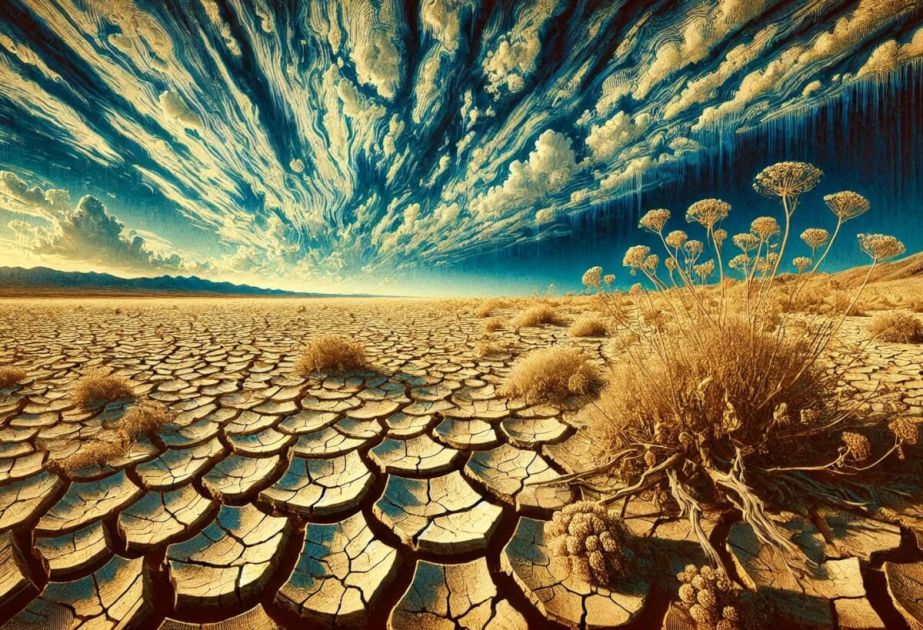Earth goes into sand: Third of world is becoming drier

By Alimat Aliyeva
Over the past three decades, the world has been grappling with a concerning trend: an area nearly a third the size of India has undergone irreversible changes, transforming from humid climate zones into arid regions. This shift poses a significant threat to agricultural sustainability, water access, and the ecological balance, Azernews reports.
According to a study by the UN Science Policy Interface (SPI), a body of scientists at the United Nations, drylands now cover 40 percent of the Earth's landmass, excluding Antarctica. Furthermore, three-quarters of the world’s land has become drier over the past 30 years—a trend that, according to experts, is irreversible. Ibrahim Tiau, Executive Secretary of the United Nations Convention to Combat Desertification (UNCCD), emphasized that aridity differs from temporary droughts in its permanent nature. He explained that aridity is a constant transformation that alters the region's climate and fundamentally changes people's lives forever.
Africa has been especially impacted by this crisis, with GDP losses between 1990 and 2015 amounting to about 12 percent. Over the next five years, the continent could lose up to 16 percent of its GDP, while Asia might see a reduction of around 7 percent. If the international community does not take decisive action, projections suggest that the area of drylands—and the number of people living in these regions—could double by 2100.
"For the first time, a UN scientific body is warning that the burning of fossil fuels is driving permanent droughts in many parts of the world, which could have catastrophic consequences for water access and bring both people and nature to the brink of irreversible disaster," said Barron Orr, Chief Researcher at the UNCCD.
The main causes of desertification and land degradation, beyond the climate crisis, include inefficient agricultural practices, excessive water extraction, deforestation, and soil erosion. These factors exacerbate the effects of natural disasters such as floods, forest fires, and more frequent droughts.
Amidst this alarming situation, global attention has turned to the ongoing BWC conference in Riyadh, which concludes this Friday. Saudi Arabia, one of the driest countries on Earth, has announced its intention to push for a global agreement on the restoration of degraded lands.
Experts have proposed several potential solutions to combat desertification, including limiting greenhouse gas emissions, promoting sustainable agricultural practices, reforestation, and improving water management. These actions are seen as vital in reversing some of the damage caused by land degradation and in mitigating future risks to global ecosystems and economies.
Here we are to serve you with news right now. It does not cost much, but worth your attention.
Choose to support open, independent, quality journalism and subscribe on a monthly basis.
By subscribing to our online newspaper, you can have full digital access to all news, analysis, and much more.
You can also follow AzerNEWS on Twitter @AzerNewsAz or Facebook @AzerNewsNewspaper
Thank you!
